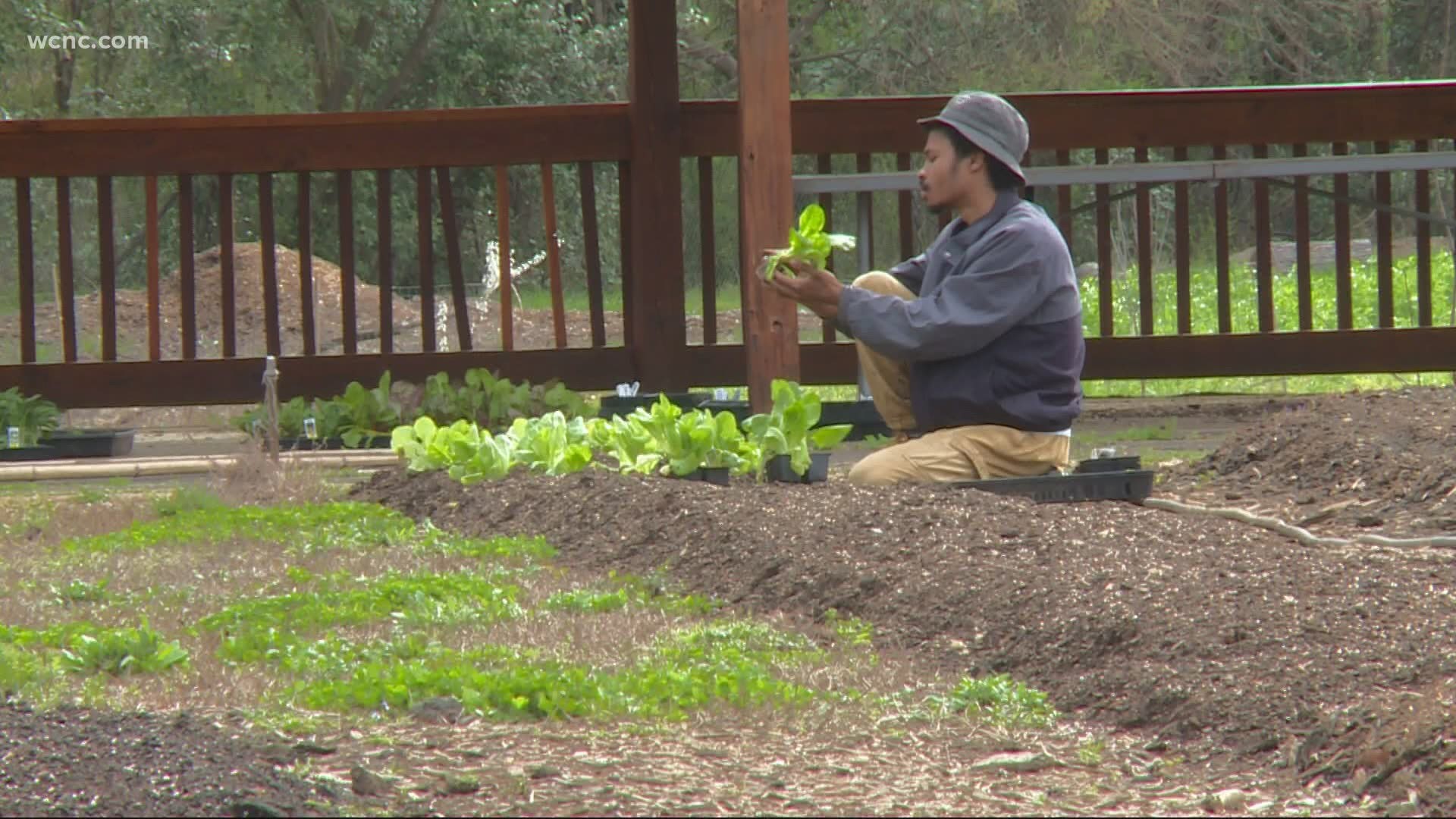CHARLOTTE, N.C. — Charlotte is one of the fastest-growing cities in the nation and as a result, urbanization is quickly pushing into surrounding neighborhoods and counties.
Carolina Farm Trust, a local nonprofit, fears that development is eating up farmland across the region and will have a big impact on access to fresh, local food around Charlotte.
“We just can't continue to look at a 3,000-mile supply chain and be comfortable with that," Zack Wyatt, president of Carolina Farm Trust, said. "There's just no way that we're going to keep going. It gets really scary."
Over the last 20 years, the Charlotte metro area has lost 270,000 acres of farmland to development. There's about 2,000 acres left. Wyatt says they're trying to save it.
"I grew up on 300 acres in Northern Virginia," Wyatt recalled of his own upbringing. “Developers took a very robust agricultural county and completely developed it [in] what seemed like overnight. And then moving to Charlotte, it just seemed very similar to me."
Now as the founder of Carolina Farm Trust, Wyatt is working with a dedicated team to buy all the land they can to create community urban farms.
“Do we really need a golf course? Or can we put something in there that's actually going to sustain the community?” Wyatt asked.
The Urban Farm at Aldersgate in east Charlotte was their first, and it's relied on local farmers to help get the crop up and running. Farmers like Wisdom Jzar with Deep Roots, an urban farm community focused on sustainable local food supply..
"For some communities who don't have access to local, healthy, organic foods, it is important to create the space for that," Jzar said.
Undoubtedly, the gap of disenfranchisement was only widened by the COVID-19 pandemic.
“People of color have been disproportionately negatively impacted by a lot of legislation, a lot of politics around the growing of food.," Jzar said.
“We actually hire people to learn this process in order to hopefully get more Black and brown farmers into food production into this space ... So when policies are made about something as essential as food, we need people to be at the table.”
Carolina Farm Trust's latest project, Free Spirit Farm, just broke ground. The more than 20-acre lot in Huntersville will soon be one of North Carolina's largest urban farms.
”There's just so much opportunity here," Wyatt said.
Free Spirit Farm will work with underserved neighbors, local schools, homeless shelters, addiction and abuse centers, and community members to offer fresh homegrown food, shortening the supply chain and promoting local sustainability.
It will also offer people the chance to learn about farming.
“If you are not born on a farm, it's almost virtually impossible to kind of get into agriculture, unless you just have a lot of money to go invest into it," Wyatt explained. "Hopefully, we can get some homegrown talent to take over our projects as they continue to grow.”
All of these farms will operate with a come as you are, pay what you can mentality.
“Food is the most intimate relationship we have on a daily basis," Wyatt said. "That's why it's important, and we need to care about it. For us and for our kids.”
Donations will determine how fast this space grows from dirt to dream.
“We need visionary leaders to turn this into a masterpiece," Wyatt said. "It's a blank canvas that you know needs to be painted.”

